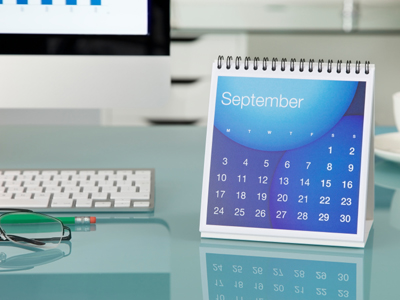
Ask the AI Tutor
Need help with Time (Very Easy)? Ask our AI Tutor!
AI Tutor - Lucy
Connecting with Tutor...
Please wait while we establish connection

How many weeks are there in a fortnight?
Time (Very Easy)
This 11 Plus Maths quiz helps pupils practise time skills, such as reading clocks, understanding leap years, and converting hours, minutes, and seconds.
1 .
Why is 'time' important?
It makes us buy watches
It makes us learn how to tell the time
It puts events in order by telling us when they happened, happen or will happen
It isn't really important
For example: John spoke to Peter yesterday; he is now speaking to Andrew and he will speak to Dave tomorrow. Time isn't just for 'telling the time'. In grammar, time is divided into past, present and future
2 .
Which one of the following is the same as 7 days?
A decade
A year
A month
A week
Seven days in a week. The ancient Roman and Greek weeks had eight days
3 .
Which one of the following can't be the number of days in a month?
31
30
28
27
February has the least number of days: 28 days
4 .
How many months are there in a leap year?
13
12
11
10
The number of months NEVER changes. D'oh!
5 .
How many weeks are there in a calendar year?
50
48
51
52
52 weeks in a year
6 .
How many weeks are there in a fortnight?
None - a fortnight is four days
4
2
3
This means there are two fortnights in a month
7 .
It is 12 noon. If your watch is running one hour slow, what time does it show?
We don't know because it is running slow
1 o'clock in the afternoon
11 o'clock in the morning
11 o'clock at night
Noon is midday: 12 o'clock is the middle of the day
8 .
If you saw the time 7:40, how would you say this in words?
Forty to eight
Twenty past eight
Twenty past seven
Twenty to eight
If the number of minutes passes '30', the time is read as 'so many minutes (less than 30) TO the next hour', e.g. '6:35' is read as twenty-five to seven. It's 25 minutes because 35 minutes have already passed: 25 + 35 = 60 = the number of minutes in an hour. You need only use the word 'minutes' if the number of minutes is NOT a multiple of 5, e.g. '3:42' is read as eighteen minutes to four because 18 is NOT a multiple of 5
9 .
If you saw the time 7:25, how would you say this in words?
Twenty-five past seven
Twenty-five past eight
Twenty-five to eight
Thirty-five past seven
If the number of minutes doesn't pass '30', the time is read as 'so many minutes (less than 30) PAST the give hour, e.g. '2:20' is read as twenty past two. You need only use the word 'minutes' if the number of minutes is NOT a multiple of 5, e.g. '3:22' is read as twenty-two minutes past 3 because 22 is NOT a multiple of 5
10 .
If your friend asked you to meet him at exactly 3 pm, when would you meet him?
At 3 o'clock in the afternoon
At 3 o'clock in the morning
At some time in the afternoon after 3 o'clock
At some time in the morning before 3 o'clock
pm = post meridiem = between 12 noon and 12 midnight; am = ante meridiem = between 12 midnight and 12 noon. Learn this!
**Unlimited Quizzes Await You! 🚀**
Hey there, quiz champ! 🌟 You've already tackled today's free questions.
Ready for more?
Ready for more?
🔓 Unlock UNLIMITED Quizzes and challenge yourself every day. But that's
not all...
not all...
🔥 As a Subscriber you can join our thrilling "Daily Streak" against other
quizzers. Try to win a coveted spot on our Hall of Fame Page.
quizzers. Try to win a coveted spot on our Hall of Fame Page.
Don't miss out! Join us now and keep the fun rolling. 🎉
**Unlimited Quizzes Await You! 🚀**
Hey there, quiz champ! 🌟 You've already tackled today's free questions. Ready for more?
🔓 Unlock UNLIMITED Quizzes and challenge yourself every day. But that's not all...
🔥 As a Subscriber you can join our thrilling "Daily Streak" against other quizzers. Try to win a coveted spot on our Hall of Fame Page.
Don't miss out! Join us now and keep the fun rolling. 🎉






